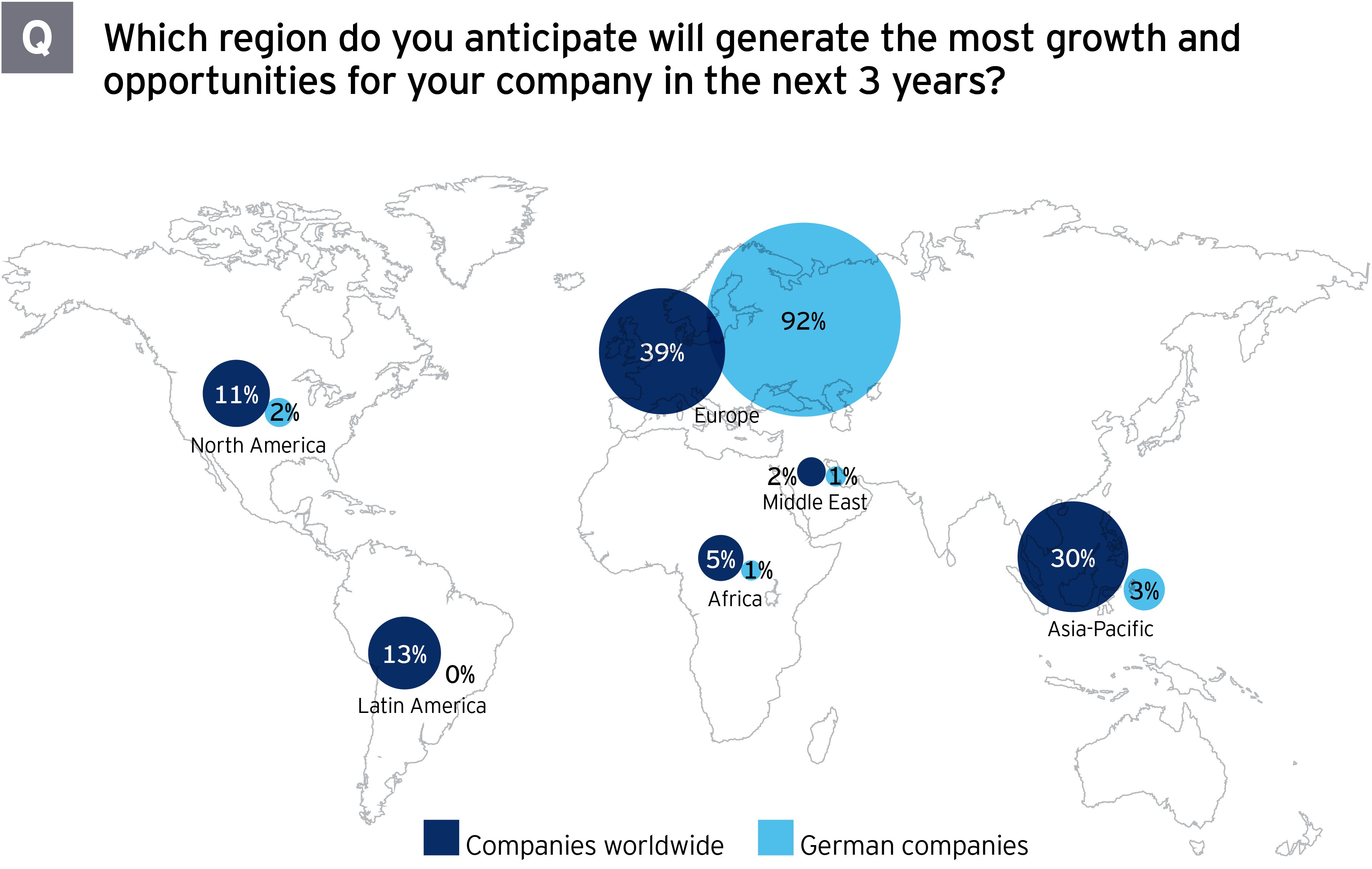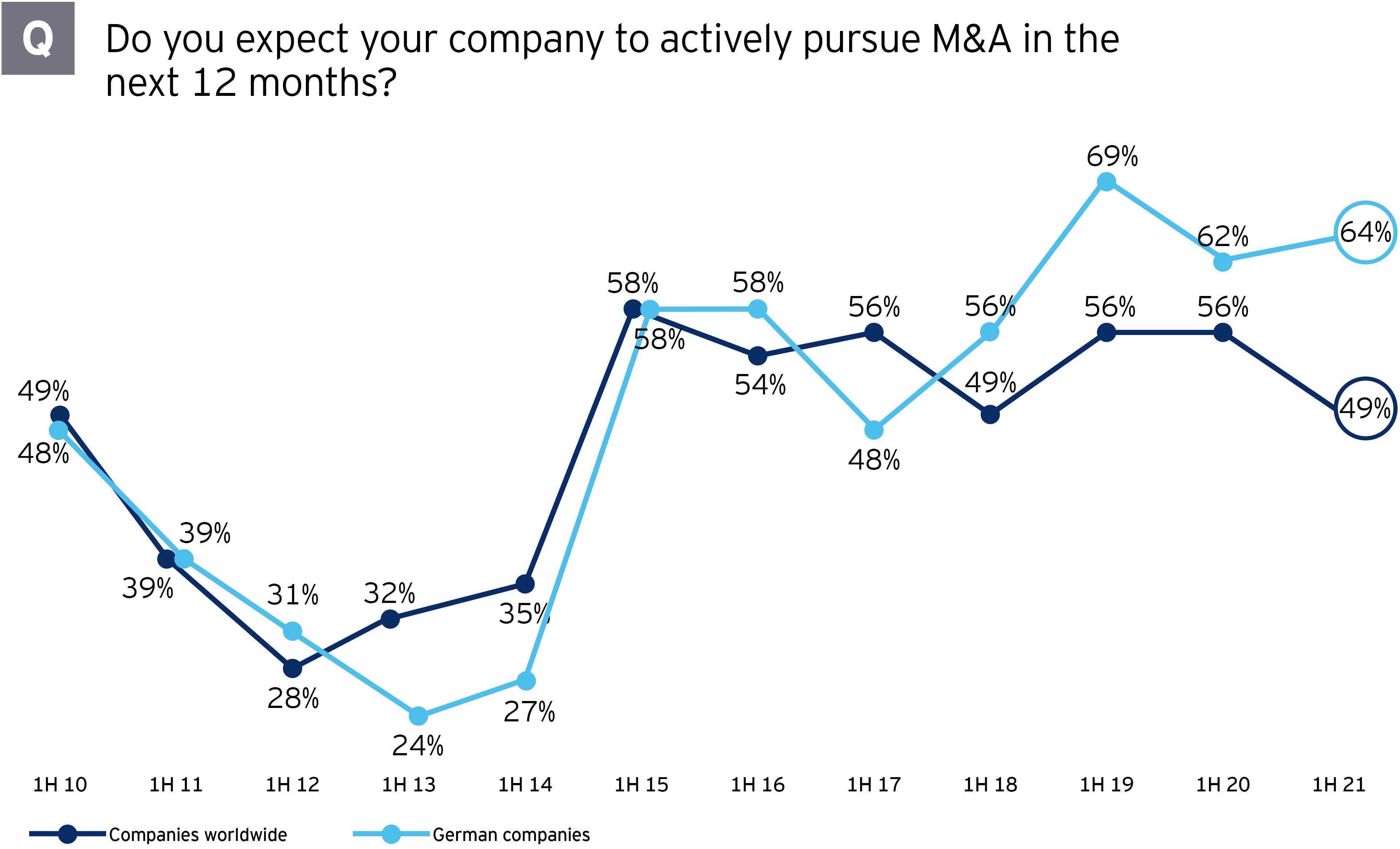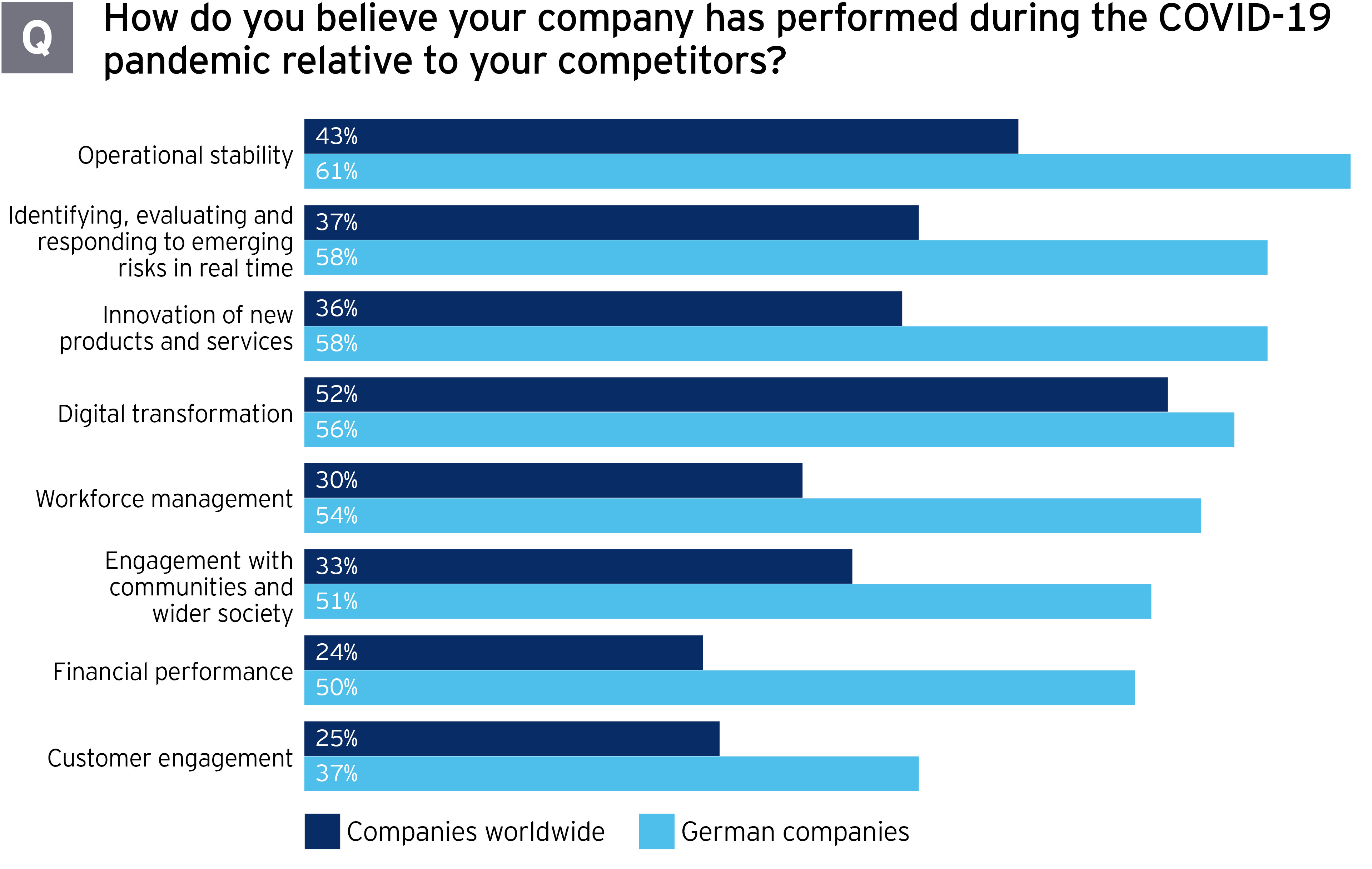Chapter # 1
German executives expect growth to come from within the region
Execs expect to help reshape value chains, addressing gaps in existing EU globalization models.
An overwhelming majority (92%) will be looking for growth opportunities from within Europe. In addition to rising geopolitical tensions among global powers, the pandemic opened glaring gaps in globalization and supply chain models. German companies expect these factors to motivate the European Union (EU) to accelerate its plans to build a post-COVID-19 Europe that is more open, strategic and autonomous. As Europe’s largest and most centrally located economy, the country is expected by German companies to play a key role in the reshaping of value chains.

As part of an export-driven, largely high-end manufacturing economy, German companies tend to rely on globalized supply chains that operate on just-in-time delivery models. In addition to EU efforts to balance the need for strategic supply resilience while staying competitive and open to trade, German companies are re-evaluating their strategies and portfolios. Four in five German executives say their company undertook a strategic or portfolio review within the last year, and while the pandemic was a driver for some, two-thirds say their plans for a review were unrelated to the crisis.
Chapter # 2
Optimism and securing supply chains fuel robust M&A appetite
German companies see opportunities to excel through M&A and divestment.
Optimism among German executives about the opportunities ahead, combined with ruthless decision-making during their strategic and portfolio reviews, have 64% saying they intend to pursue M&A in the next 12 months.

As a leader in high-tech manufacturing, Germany sits at the center of digitization and automation. Given falling valuations of takeover candidates, German executives anticipate a significant increase in M&A activity in the coming months.
German executives aren’t the only ones betting on Germany, it seems. Global investors seem equally bullish on Germany’s position to benefit from a rapid recovery. For the first time, Germany is the top investment destination among global survey respondents.
Given the country’s reliance on global supply chains, German executives unsurprisingly cite securing supply chain and responding to regulatory tariffs and trade shifts as the top strategic driver for their M&A ambitions. Other targets include assets that will enable them to move into adjacent business activity, and acquiring technology, talent, innovation or new production capabilities.
In addition to M&A, German companies will be looking at divestment opportunities as an outflow from their strategic and portfolio reviews. German companies will be looking to sell underperforming assets to improve profit margins.
Chapter # 3
Geopolitical tensions push executives to see beyond buy or build
German companies will be focusing on regional ecosystems.
Although German executives are mostly optimistic, they understand that their intentions for an accelerated rebound relies on an orderly vaccination rollout throughout the world so that businesses and economies can arrive at a new normal.
Interestingly, however, the continuation of the pandemic is not their most pressing concern. German executives believe the greatest risks to their own businesses are macroeconomic performance and geopolitical tensions. As a result, German companies will be looking toward reshoring of supply chains and strengthening regional ecosystems as key imperatives for accelerated growth in the years ahead.
German companies understand the idea of ecosystems and the importance of partnerships, but remain cautious about participating in ecosystems. Historically, they have preferred to acquire and lead.
Responses in the EY Global Capital Confidence Barometer seem to bear this out. Only 20% of German executives who participated in the survey elected to answer the question relating to ecosystems. Of those, 90% say they need to define their future role in the ecosystem more clearly, while 73% say they are more open to partnering with the competition to create new ecosystems. However, 84% believe they need to control all key elements in the ecosystem, and 97% say they need to build new skills and processes to operate effectively in their ecosystem.
As German companies prepare for a post-pandemic world, they’ll want to think more broadly about developing and engaging in collaborative ecosystems and partnerships that can help them excel in the areas outside of their core competencies without having to build or buy.
Related articles
Summary
The EY Global Capital Confidence Barometer (pdf) gauges corporate confidence in the economic outlook and identifies boardroom trends and practices in the way companies manage their Capital Agendas.



